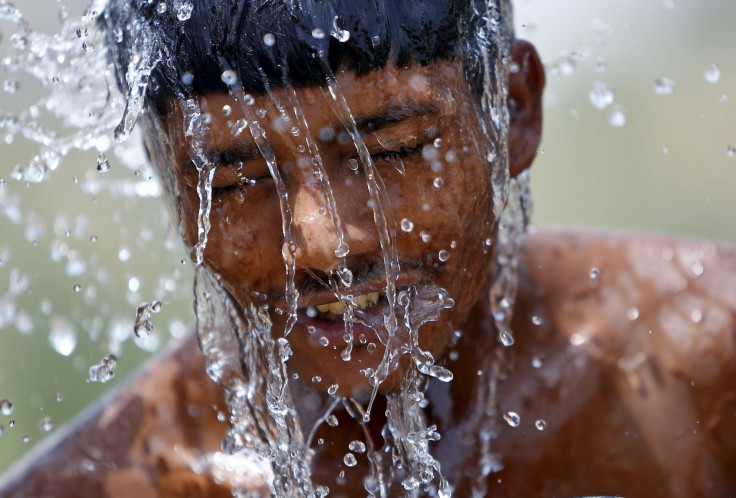India's Heat Wave Deadliest In Over Three Decades, Death Toll Crosses 2,000

The death toll from India’s intense heat wave crossed 2,000 on Saturday, making it the deadliest in over three decades. Although the southern states of Telangana and Andhra Pradesh have been hit the hardest, accounting for nearly 1,980 deaths, extremely high temperatures of up to 117 degrees Fahrenheit have been recorded in cities across Uttar Pradesh, Jharkhand, Odisha, and the capital city of New Delhi.
Indian meteorological officials have termed the heat wave “severe” and warned that it could continue for at least the next two days before the advent of monsoon rains -- expected to hit the coast of the southern state of Kerala on June 1.
Most of those who died in the calamity are believed to be daily wage laborers or old people suffering from sunstroke or dehydration. Hospitals in the country have reportedly been directed to provide emergency treatment to people suffering from heatstroke. State authorities have also set up water distribution points in affected areas. Although advisories have been issued warning people not to venture out, laborers and farmers struggling to make ends meet do not consider it a viable option.
“How do we cope up with the heat? We have to raise kids and so we have to work even though it's hot. Otherwise what will our children eat?” Sunder, a 38-year-old bricklayer from city of Gurgaon in Haryana, told Reuters.
Meanwhile, the surge in consumption of electricity by air conditioners is causing frequent power cuts across the country. “If they cut power in the afternoon then it gets unbearably hot, and we also run into a water shortage since the overhead tanks can't be refilled,” a resident of Hyderabad, the capital of Telangana, told Agence France-Presse (AFP).
New Delhi-based research group Centre for Science and Environment (CSE) warned that the country is likely to face hotter summers in the coming years, in line with a global trend of longer, more severe heat waves becoming more frequent.
“Eight of the 10 warmest years in India were during the recent decade (2001-2010), making it the warmest decade on record,” CSE climate researchers said in a statement released earlier this week. “The number of heat wave days may go up from about 5 to between 30 and 40 every year.”
© Copyright IBTimes 2024. All rights reserved.












